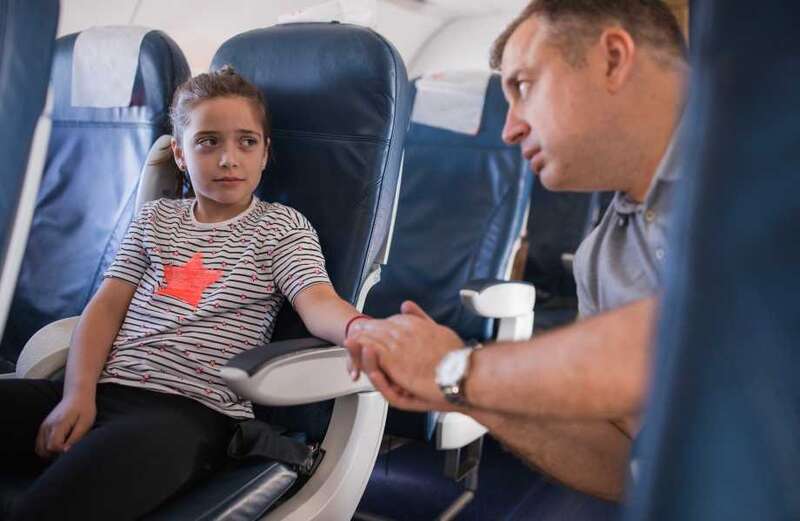A DOCTOR has revealed exactly what happens when they're called to an emergency on board a plane.
A lot of people are afraid of flying, with a metal tube 30,000 feet in the air not exactly loaded with the medical equipment needed for all eventualities.

Nevertheless, the chances of there being a trained medical professional on board the plane are actually pretty high.
According to the Telegraph, 1 in every 150 people living in the UK is a trained medical professional of some sort, working for the NHS.
And they will be able to provide some sort of assistance for any medical issues that may take place on flights.
 I'm a flight attendant who only carries hand luggage on holiday - here's how
I'm a flight attendant who only carries hand luggage on holiday - here's how
Flight attendants do have some medical training, but will always seek better qualified help should they need it.
One cabin crew member revealed to Sun Online Travel: "If there's a medical incident mid-air, we have equipment on board, including a defibrillator and a resuscitation kit and we can also do CPR.
"We will always ask if there's a medical professional on board the plane who can help us and in some circumstances, we can reroute the aircraft to the nearest airport and get the passenger medical attention on the ground."
While that all sounds very dramatic, in reality, things are often far less terrifying.
Dr Richard Dawood, a travel medicine specialist at London’s Fleet Street Clinic, told Telegraph Travel he is mostly asked to reassure anxious passengers than to save lives.
He said: “When people think of emergencies in the air, they often imagine moments of high drama, but the reality is often much more mundane.
“Often the main requirement is for somebody to provide reassurance that all is well, both to an anxious passenger as well as to the crew, who might need extra help assessing the severity of the situation and someone who can help take charge.”
However, sometimes real emergencies can happen on board aircraft.
A flight attendant explained to Sun Online Travel what they have to do if they are unable to save a passenger on board one of their flights.
They said: "If our efforts aren't successful and the person sadly passes away, it's about being as respectful and discreet as possible.
 I'm a pilot - the passenger habit that drives me mad and I bet you're guilty
I'm a pilot - the passenger habit that drives me mad and I bet you're guilty
"We would return the passenger to their seat, where we would strap them in and cover them with blankets.
"If they were sat near the exit, we would reroute passengers around them once we had landed, to limit the amount of contact other people had with the deceased person."
TikTok user Sheena Marie, who also works as a flight attendant said that sometimes deceased passengers can't be moved back to their seats if they passed away in the aisle.
She explained in a video: "If they have a heart attack and die, and there is nothing we can do about it, and we can't start CPR, we are just going to wait until we get to our final destination.
"We are going to keep that dead body where it is at."
She did add that if there is enough room on the plane, such as a whole back row being free, then the body could be moved there and "covered with a blanket".
Passengers would then be let off the plane before medical professionals board to remove the body, and the plane taken out of service.
ome airlines have a special name they use to let dead passengers fly undetected.
The phrase HR could also mean there is a dead body on the flight.



































